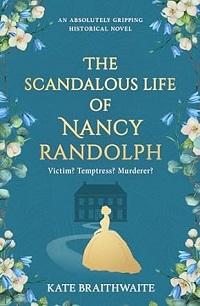Becoming Madam Secretary by Stephanie Dray: Giving Voice to the “Most Important Woman in American History”
 BY TRISH MACENULTY
BY TRISH MACENULTY
If it hadn’t been for Frances Perkins, America’s first female Secretary of Labor under Franklin Delano Roosevelt, many more Americans would be suffering and, as author Stephanie Dray points out, some of us might not be here at all.
Dray says that without Perkins’ efforts, “We would have grown up in a much more dangerous and cruel world, though I’m not sure I would have grown up at all. I don’t think my family would have survived the Great Depression without Frances, so I feel I owe her a personal debt of gratitude. And I consider it an honor that I get to tell her story — even if she was so private that she wouldn’t have wanted me to.”
And yet did any of us learn about Frances Perkins and her vital contributions to the welfare of the American public in our history classes? I certainly didn’t. Now, thanks to Stephanie Dray’s exquisitely written new novel, Becoming Madam Secretary (Berkley, 2024), more people will know the story of this incredibly intelligent and resilient fighter for America’s downtrodden.
Dray said she stumbled upon the story of young Frances Perkins while researching the Triangle Shirtwaist Fire, which Perkins witnessed, and immediately realized hers was a story that needed telling. Dray’s own family history also contributed to her understanding of Perkins’ importance.
“Escaping early 20th-century Europe’s poverty and persecution, my ancestors were relatively new to the American scene. My grandparents, growing up in the Great Depression, had it tough — they’d hunt frogs and pick wild mushrooms just to eat,” she said.
The Civilian Conservation Corps enacted under President Franklin Roosevelt’s New Deal turned things around for her family.
“I grew up hearing how FDR was a lifeline for them. Both my granddads, who signed up right after Pearl Harbor, saw FDR as a hero. And when my dad got polio, my grandmother looked to FDR as a beacon of hope,” she said. “But you know, we hardly ever talked about Frances Perkins, even though she was the one who deserved most of the credit — this vibrant, influential woman who I now think is the most important woman in American history.”
While there have been biographies written about Perkins, Dray’s novel makes for compelling reading and is likely to engage readers in ways that nonfiction simply can’t. As Dray says, the main job of biographers is to tell us what happened, but the historical novelist helps us feel something about it.
“A biographer should lay out the facts and be careful about speculation. But as a novelist, it’s my job to speculate and fill in the blanks, which is super fun,” she said. Dray observed that biographers usually strive to remain relatively neutral when there’s a conflict in the narrative.

author photo by Kate Furek
“But novelists? We need to pick a side!” she said. Dray does have her own personal lines that she won’t cross, however. “For example, if I’m going to say something controversial about a historical figure, I make sure I have some evidence. But if the record is hazy, I’ll generally give my protagonist the benefit of the doubt. When it comes to modern political actors–all of whom are still directly relevant in political battles we are having today–I stick as close to the facts as I can.”
The research for this book is astounding. The main difficulty Dray faced was that she started writing at the height of the pandemic.
“With travel ruled out, I wasn’t able to see primary sources like Frances’ papers until the book was already drafted,” she said. “Fortunately, I was able to rely upon several excellent biographies and my heroine’s oral history, which has been digitized by Columbia University.”
Dray writes the book in the first person, and the voice of Perkins in this book is utterly convincing, making it sound more like a memoir than a novel.
“With Frances Perkins, I actually had a very public record, an oral history, video clips showing her mannerisms and recordings of my heroine’s voice to work with. She spoke in this classic ‘New England Boarding School’ way that was guarded but also drily witty,” Dray said, adding that she used many of Perkins’ own words in the book. “Whenever I was filling in the blanks, I’d listen to her recordings and let Frances talk to me so that she would hopefully speak through me.”
Dray also conducted telephone interviews with family members which gave her a solid base upon which to build since it was more than a year before she was able to see Perkins’ personal papers. Frances Perkins’ grandson’s contributions were especially helpful.
“His memories were a treasure trove. They helped me capture the essence of Frances’ personality – her warmth, empathy, and the strength that drove her historic achievements.”
Dray said she wanted the book to be an intimate portrayal of the unsung heroine at the heart of the American story.
“I wanted to get past all the public walls she had to put up to survive so that her incredible story would be told, and remembered.”
Today we sometimes forget how much was at stake in the United States in the 1930s and 40s. In addition to telling Perkins’ story, Dray details the courage of progressives who fought to make the country a more humane place to live.
“A lot of people mistakenly believe that progress in a society is linear. My grandparents’ generation defeated Fascism, built a social safety net, and set up the country for the longest period of relative peace and prosperity we have ever known,” she said. “But that can’t be taken for granted. Those who study history know that there are always setbacks–that empires don’t just rise, they also fall. We know that democratic republics are fragile.”
A common theme in Dray’s writing has been that the United States is a delicate experiment. She acknowledges that there’s never been a time when the country perfectly lived up to its stated ideals, and there may never be.
“The best we can do is fight and win most of the battles in a continuous war for a better world. I think Frances Perkins knew better than anyone that we’ve got to fight even if we’re going to lose so that someone, maybe a generation later, can pick up the sword we lost on the battlefield and carry on the fight.”
Becoming Madam Secretary is an inspiring read that not only illuminates the past, but also shines a light on a pathway to a better future.
“I hope that in enjoying this book, and sharing it with others, readers will help me preserve Frances Perkins’ incredible legacy,” Dray concluded.
About the contributor: Author of the Delafield & Malloy Investigations series, the historical coming-of-age novel, Cinnamon Girl (Livingston Press, Sept. 2023), and more, Trish MacEnulty is currently working on a play about silent film star, Theda Bara. More info at her website.






